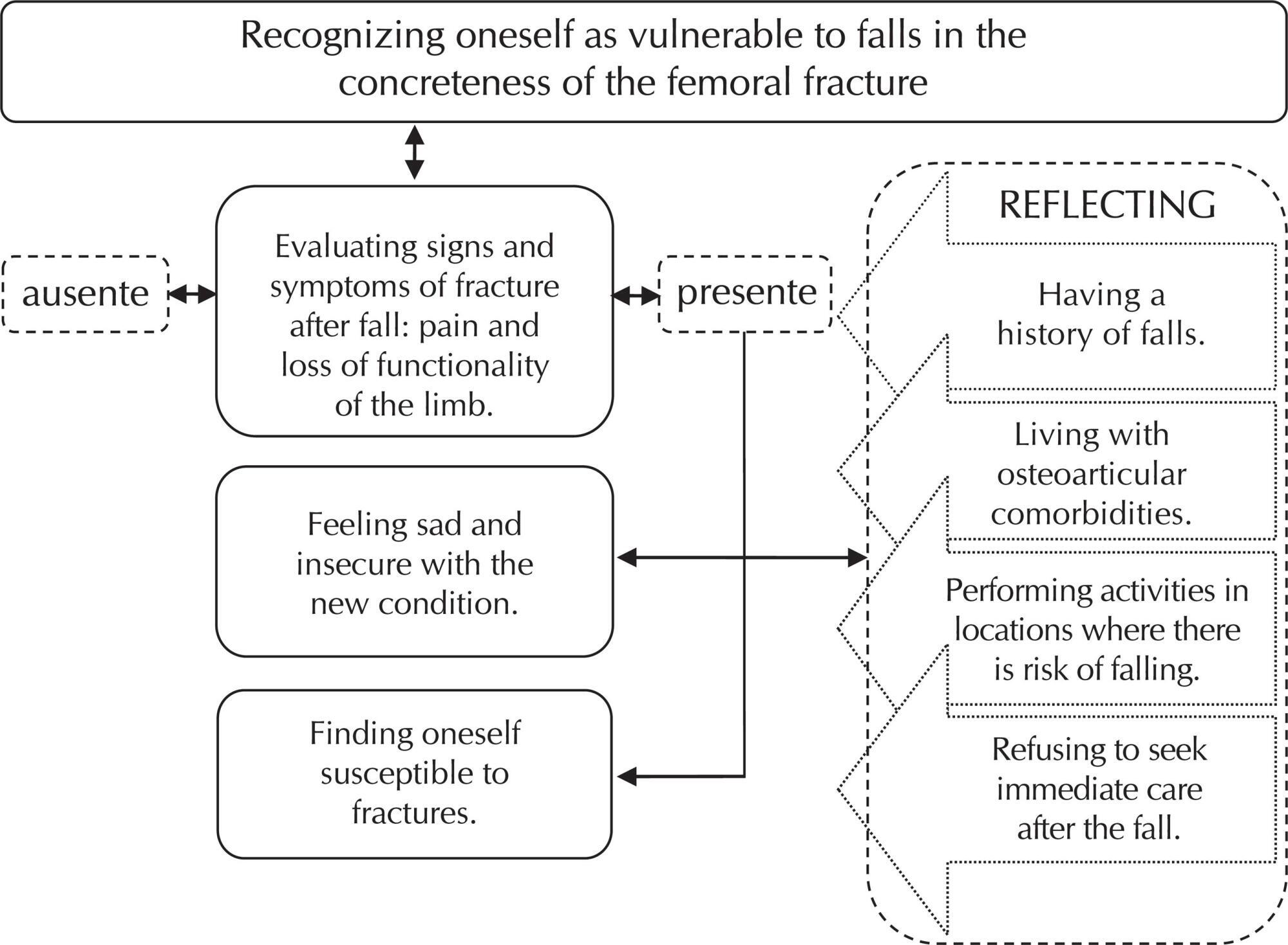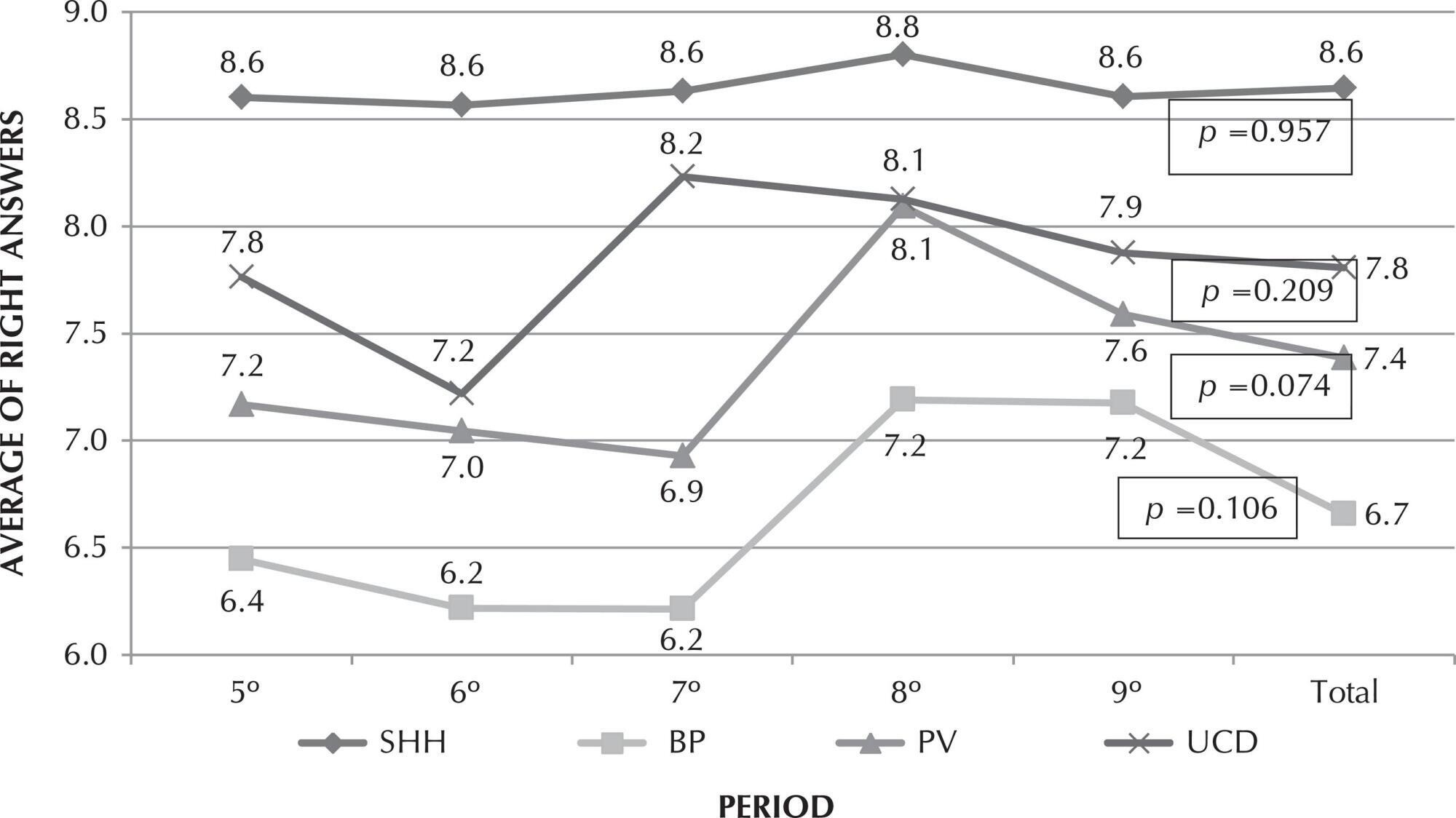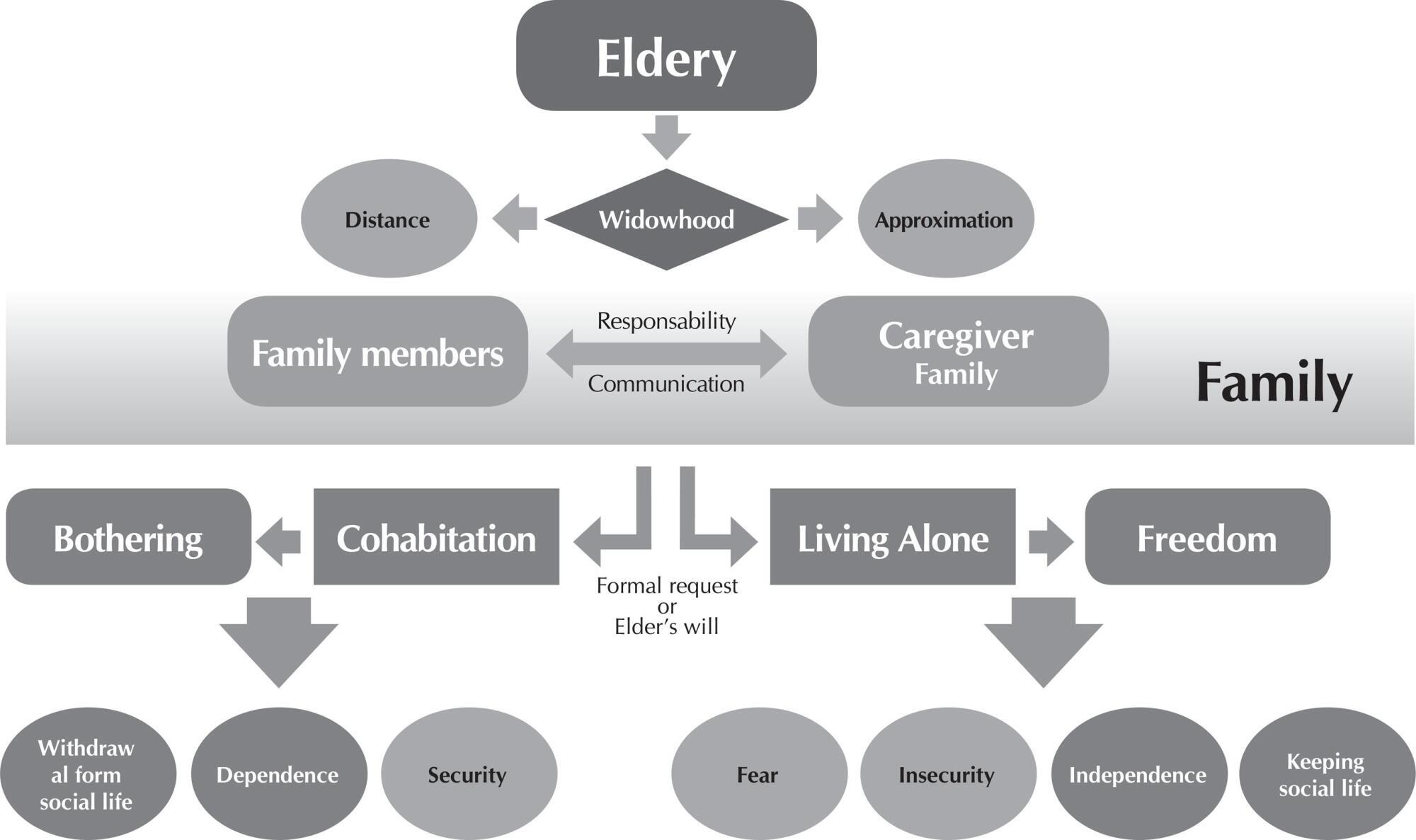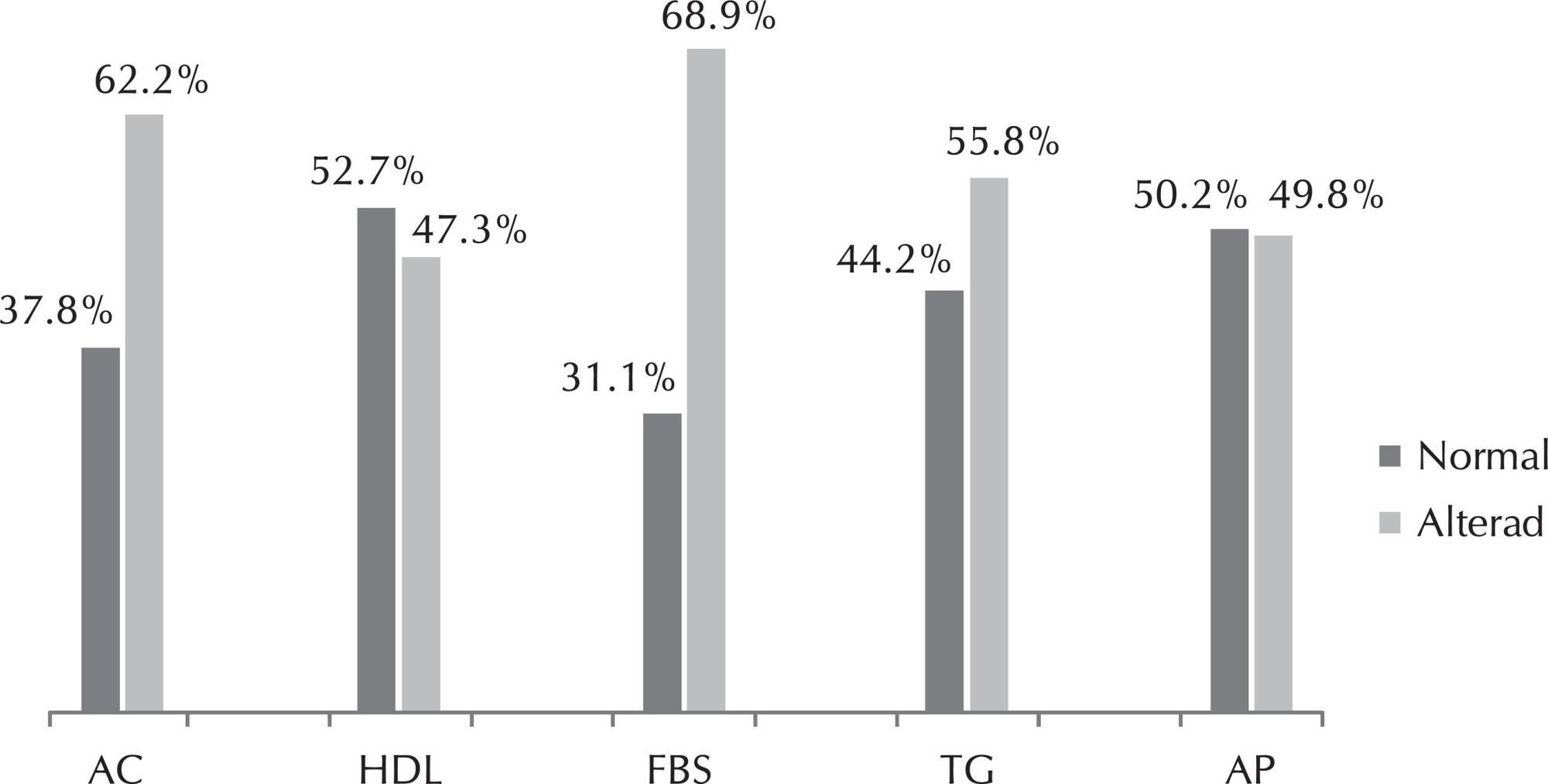-
ERRATUM01-01-2016
ERRATUM
Revista Brasileira de Enfermagem. 2016;69(1):206-206
Abstract
ERRATUMERRATUM
Revista Brasileira de Enfermagem. 2016;69(1):206-206
DOI 10.1590/0034-7167.20166901e02
Views0In the article “Conceptions of mid-level nursing professionals facing those with a chemical dependency”, with the number of DOI: 10.1590/0034-7167.2015680610i, published in the journal Revista Brasileira de Enfermagem, v68(6):755-60, page 760 that read: “8. Vargas D, Soares J. Knowledge and attitudes of nurses towards alcohol and related problems: the impact of an educational intervention. Rev […]See more -
ERRATUM01-01-2016
ERRATUM
Revista Brasileira de Enfermagem. 2016;69(1):205-205
Abstract
ERRATUMERRATUM
Revista Brasileira de Enfermagem. 2016;69(1):205-205
DOI 10.1590/0034-7167.20166901e01
Views0In the article “Using the theory of meaningful learning in nursing education”, with the number of DOI: 10.1590/0034-7167.2015680420i, published in the journal Revista Brasileira de Enfermagem, v68(4):626-35, page 627 that read:“Ausubel was descended from Jewish, born in New York in 1918 and died in 1994 at the age of 75. He thought and wrote until […]See more -
EXPERIENCE REPORT01-01-2016
Nursing process documentation: rationale and methods of analytical study
Revista Brasileira de Enfermagem. 2016;69(1):197-204
Abstract
EXPERIENCE REPORTNursing process documentation: rationale and methods of analytical study
Revista Brasileira de Enfermagem. 2016;69(1):197-204
DOI 10.1590/0034-7167.2016690126i
Views0See moreABSTRACT
Objective:
to describe the methods used to analyze the associations between variables of service, nursing and the nursing process documentation in institutions of the Department of Health of the State of São Paulo.
Method:
multilevel analytical study with data obtained in the domains of institution, units of the institution and nursing professionals who work there, using standardized instruments. The analyses had as axis the degree of completeness of the nursing process documentation in units or institutions and their association with variables of nursing personnel, of units and of institutions.
Conclusion:
This study will provide important empirical evidence on the factors involved in the nursing process documentation.
-
EXPERIENCE REPORT01-01-2016
Qualitative methodologies in health research: interpretive referential of Patricia Benner
Revista Brasileira de Enfermagem. 2016;69(1):192-196
Abstract
EXPERIENCE REPORTQualitative methodologies in health research: interpretive referential of Patricia Benner
Revista Brasileira de Enfermagem. 2016;69(1):192-196
DOI 10.1590/0034-7167.2016690125i
Views0See moreABSTRACT
Objective:
this article reports on the experience of using the interpretive phenomenological framework of Patricia Benner in a Brazilian context. Benner’s interpretive phenomenology, based on existential and interpretative philosophy, aims to understand human experiences in the particular worlds of research participants. Data were collected through interviews with nine nurses in November and December 2014.
Results:
data analysis process according to Benner’s framework consisted of: transcription, coding, thematic analysis, and search for paradigmatic cases and examples. Therefore, the prior knowledge of the researcher is an important part of the study, consisting in manners of the research conduction.
Conclusion:
The use of this methodological framework entailed a great challenge for the researcher, however, it also enabled a unique opportunity to illuminate important existential phenomena related to the daily lives of research participants.
-
REVIEW01-01-2016
Nurses’ performance on primary care in the National Health Service in England
Revista Brasileira de Enfermagem. 2016;69(1):182-191
Abstract
REVIEWNurses’ performance on primary care in the National Health Service in England
Revista Brasileira de Enfermagem. 2016;69(1):182-191
DOI 10.1590/0034-7167.2016690124i
Views0See moreABSTRACT
Objective:
To analyze the expansion of nursing roles in primary care in the English National Health Service and the implications for professional practice.
Method:
qualitative research in case study format, held in London, England, in six primary care units. Data were obtained through interviews with nine nurses. After the thematic data analysis, two units emerged: the nurses’ performance characteristics and effects of the expansion of nursing roles.
Results:
expansion of nurses’ roles: consultation, diagnosis and drug therapy, case management and monitoring of chronic conditions. Repercussions: for the user, there was improved access, communication and comprehensive care, increased duration of consultations, resulting in greater adherence; for nurses, there was the expansion of professional skills, knowledge and professional recognition; to the health care system, it resulted in cost savings.
Conclusion:
benefits in expanding nursing roles, were visible, contributing to primary care quality.
-
REVIEW01-01-2016
Meleis’ Nursing Theories Evaluation: integrative review
Revista Brasileira de Enfermagem. 2016;69(1):174-181
Abstract
REVIEWMeleis’ Nursing Theories Evaluation: integrative review
Revista Brasileira de Enfermagem. 2016;69(1):174-181
DOI 10.1590/0034-7167.2016690123i
Views0See moreABSTRACT
Objective:
to analyze the application of the theory evaluation model proposed by Meleis in Brazilian studies.
Method:
integrative review of online articles published from 2002 to 2012 in the databases LILACS and BDENF.
Results:
the 16 selected studies confirmed the use of only three of the five stages proposed for Meleis’ theories analysis: Description of the Theory, Criticism of the Theory and Analysis of the Theory, with a predominance of a single unit of analysis in each.
Conclusion:
the analysis of nursing theories provides support to nurses in the practice, research, education and administration of the different dimensions of care. Meleis’ model figures as very important by contributing to the development of knowledge of nursing discipline, considering that its use as a method allows several reflections on theories in order that they be revalidated to support a more theoretical and practical applicability.

-
REVIEW01-01-2016
Clinical indicators of sexual dysfunction in pregnant women: integrative literature review
Revista Brasileira de Enfermagem. 2016;69(1):165-173
Abstract
REVIEWClinical indicators of sexual dysfunction in pregnant women: integrative literature review
Revista Brasileira de Enfermagem. 2016;69(1):165-173
DOI 10.1590/0034-7167.2016690122i
Views0ABSTRACT
Objective:
to identify the nursing diagnosis clinical indicators of sexual dysfunction in pregnant women.
Method:
it is an integrative literature review, with research in databases using the keywords “sexual*”, “pregnan*” and “function*”. Studies included had an abstract available for analysis, referring to pregnant women over 18 years old, written in Portuguese, French, Spanish and English, with publication date between 2010 and 2014. Studies that reporting pregnant women with an associated pathology were excluded.
Results:
sexual dysfunction in pregnant women is consistent in the literature. Nine defining characteristics were identified and 16 related factors, some not classified in NANDA International.
Conclusion:
clinical indicators can be added to the nursing diagnosis to favor an accurate diagnosis and effective interventions in the surveillance of pregnancy as a period of healthy sexual experience.
Keywords:Physiological Sexual Dysfunction, Psychogenic Sexual DysfunctionPregnant WomenReviewSexual BehaviorSee more
-
RESEARCH01-01-2016
Conditions of functional health literacy of an elderly diabetics group
Revista Brasileira de Enfermagem. 2016;69(1):156-164
Abstract
RESEARCHConditions of functional health literacy of an elderly diabetics group
Revista Brasileira de Enfermagem. 2016;69(1):156-164
DOI 10.1590/0034-7167.2016690121i
Views0See moreABSTRACT
Objective:
to evaluate the conditions of functional health literacy of an elderly diabetics group.
Method:
cross-sectional and descriptive study, with diabetic’s elderly assisted in the SUS (N = 114). The social and health conditions were evaluated as well as functional health literacy by S-TOFHLA test (short version); the simple proportions, average, standard deviation and Pearson’s Chi-square were described by SPSS software (20.0) with α = 5% value.
Results:
the mean age was 67.4 years, 74.0% of the elderly were women, had up to four years of schooling; 29.8% had a long-standing illness, 64.0% reported having high blood pressure, 47.4% smoke or were smokers, 73.7% had low functional health literacy, which was associated with schooling p = 0.001.
Conclusions:
the low functional health literacy could be a self-care conditioning and can be influenced by low schooling because it implies to have skills to understand and make decisions aimed at self-management of health.
-
ORIGINAL ARTICLE12-13-2024
Nurses’ experience regarding patient safety in mobile pre-hospital care
Revista Brasileira de Enfermagem. 2024;77(5):e20230529
Abstract
ORIGINAL ARTICLENurses’ experience regarding patient safety in mobile pre-hospital care
Revista Brasileira de Enfermagem. 2024;77(5):e20230529
DOI 10.1590/0034-7167-2023-0529
Views0See moreABSTRACT
Objectives:
to understand nurses’ experience regarding patient safety in mobile pre-hospital care.
Method:
a qualitative, exploratory and descriptive study, conducted with nurses active in mobile pre-hospital care services. Semi-structured interviews were conducted, audio-graved and submitted to Bardin’s content analysis.
Results:
from four thematic categories established, nurses reported the care and management skills necessary to work in this service. They demonstrated a commitment to ensuring safe care for patients, staff and spectators. They highlighted the actions taken to prevent and mitigate incidents. However, they based their experiences on practice protocols and individual actions, expressing the need to improve knowledge about patient safety.
Final Considerations:
mobile pre-hospital care nurses’ experience in relation to patient safety was limited, suggesting the need for training on the subject, alignment of work processes and implementation of strategies, aiming to guarantee safe care.
-
ORIGINAL ARTICLE12-13-2024
Repercussions of the pandemic on tuberculosis control actions from the perspective of health professionals
Revista Brasileira de Enfermagem. 2024;77(5):e20230477
Abstract
ORIGINAL ARTICLERepercussions of the pandemic on tuberculosis control actions from the perspective of health professionals
Revista Brasileira de Enfermagem. 2024;77(5):e20230477
DOI 10.1590/0034-7167-2023-0477
Views0See moreABSTRACT
Objectives:
to analyze the repercussions of the COVID-19 pandemic on tuberculosis control actions from the perspective of primary health care professionals.
Methods:
this descriptive study with a qualitative approach was conducted from November 2022 to April 2023, using semi-structured interviews with 11 key informant professionals from primary health care units in a Brazilian capital. Data were organized using Atlas.ti 22.0 software and subjected to thematic-categorical content analysis.
Results:
the pandemic scenario caused alterations in the work process, necessitating abrupt adaptations, and led to detrimental impacts on the health of professionals and tuberculosis control actions, which were reduced or discontinued.
Final Considerations:
there was evident unpreparedness and a lack of resources from various governmental levels and health services to handle the public health emergency situation without severe harm to the provision of essential services.
-
Training of Brazilian indigenous nurses: between human rights, valuing diversity and inclusion
Revista Brasileira de Enfermagem. 2024;77(5):e20230430
Abstract
Training of Brazilian indigenous nurses: between human rights, valuing diversity and inclusion
Revista Brasileira de Enfermagem. 2024;77(5):e20230430
DOI 10.1590/0034-7167-2023-0430
Views0See moreABSTRACT
Objectives:
to analyze the possibilities and potential of training indigenous nurses, given the Brazilian Health System (SUS), understanding the relationships between education and health.
Methods:
theoretical-reflective study, based on scientific literature, aligned with the experience, critical thinking of its authors and the Sustainable Development Goals in Brazil.
Results:
this text articulates three axes: Potential for including indigenous students in nursing training; Paths to achieving equity through inclusion and retention policies for indigenous students at different levels; and Implications of this for the SUS and global health.
Final Considerations:
indigenous students, beneficiaries of affirmative actions, face challenges of inclusion and retention in public universities that directly impact their academic training. Added to this are the difficulties identified in basic education, professor training and implementation of permanence policies, with consequences for services and training at other levels.
-
ORIGINAL ARTICLE12-13-2024
Interobserver agreement in Reception and Risk Stratification in Obstetrics implementation
Revista Brasileira de Enfermagem. 2024;77(5):e20230361
Abstract
ORIGINAL ARTICLEInterobserver agreement in Reception and Risk Stratification in Obstetrics implementation
Revista Brasileira de Enfermagem. 2024;77(5):e20230361
DOI 10.1590/0034-7167-2023-0361
Views0See moreABSTRACT
Objectives:
to analyze interobserver agreement in the Reception and Risk Stratification in Obstetrics protocol implementation.
Methods:
a cross-sectional study carried out during Reception and Risk Stratification in Obstetrics implementation, conducted in a tertiary hospital in southern Brazil with 891 participants in January 2020. Descriptive and interobserver agreement analysis was carried out using the Kappa coefficient in the risk stratification assigned by the triage nurse and reviewed by the researcher.
Results:
around half of the calls (55.6%) were stratified as not very urgent (green), followed by urgent (yellow) (31.8%), very urgent (orange) (9.3%), not urgent (blue) (3.4%) and no emerging stratification (red). Agreement analysis of revised stratification found Kappa values of 0.20 (blue), 0.54 (green), 0.77 (yellow) and 0.80 (orange).
Conclusions:
most appointments were non-urgent. The agreement analysis between the revised and assigned risk stratification revealed greater interobserver agreement as the priority level increased.
-
ORIGINAL ARTICLE12-13-2024
Adaptation and implementation of a Nursing care protocol for children in the Amazon Region
Revista Brasileira de Enfermagem. 2024;77(5):e20230245
Abstract
ORIGINAL ARTICLEAdaptation and implementation of a Nursing care protocol for children in the Amazon Region
Revista Brasileira de Enfermagem. 2024;77(5):e20230245
DOI 10.1590/0034-7167-2023-0245
Views0See moreABSTRACT
Objectives:
to describe the process of implementing an adapted protocol for pediatric nursing care in a health unit located in a municipality in the Amazon Region.
Methods:
methodological research conducted in a basic health unit with four family health teams in the state of Rondônia, involving seven nursing professionals. Data collection occurred between October 2020 and April 2022, following the research phases: situational diagnosis, exploratory phase, protocol definition, implementation, and evaluation.
Results:
the outcome was the adaptation and implementation of a nursing care protocol for children.
Final Considerations:
the adaptation and implementation process can be an effective approach to improving care, strengthening nursing as a profession with a solid foundation in scientific and clinical evidence. This facilitates early problem identification and appropriate guidance, leading to better health outcomes for children.
-
ORIGINAL ARTICLE12-13-2024
Nurses’ experiences in caring for people with mental health problems hospitalized due to clinical comorbidities
Revista Brasileira de Enfermagem. 2024;77(5):e20230136
Abstract
ORIGINAL ARTICLENurses’ experiences in caring for people with mental health problems hospitalized due to clinical comorbidities
Revista Brasileira de Enfermagem. 2024;77(5):e20230136
DOI 10.1590/0034-7167-2023-0136
Views0See moreABSTRACT
Objectives:
to understand nurses’ experiences in caring for people with mental health problems hospitalized due to clinical comorbidities in non-psychiatric Inpatient Units.
Methods:
qualitative study, guided by Alfred Schutz’s social phenomenology. Sixteen phenomenological interviews were conducted. The content was analyzed and discussed based on the literature, through the composition of three categories of analysis.
Results:
three categories emerged in the study: Challenges in care faced by nurses; Fragmented care action; and Ideal care. The disarticulation of the clinic was revealed, as described by nurses, showing care as an action far removed from the comprehensiveness of a person. Nurses’ performance is guided predominantly by biomedical reference, disregarding appreciation of subjectivity.
Final Considerations:
it was observed that nurses attribute the responsibility for patient care to factors external to their life-world, when, in fact, these aspects should be components that help them in comprehensive care construction.
-
REVIEW11-29-2024
Assessment of knowledge in oncology about care for transgender people: a scoping review
Revista Brasileira de Enfermagem. 2024;77:e20230532
Abstract
REVIEWAssessment of knowledge in oncology about care for transgender people: a scoping review
Revista Brasileira de Enfermagem. 2024;77:e20230532
DOI 10.1590/0034-7167-2023-0532
Views0ABSTRACT
Objective:
to identify evidence available in the literature on instruments and methodologies used to assess healthcare professionals’ knowledge about cancer care for the transgender population.
Methods:
a scoping review was conducted in seven databases, including studies that answered the question: what is the healthcare professionals’ level of knowledge about cancer care for the transgender population?
Results:
forty-one articles were selected that dealt specifically with healthcare professionals’knowledge in relation to care for the LGBTQIAPN+ population, especially the transgender population. Eighteen studies assessed patients’ perceptions of professionals’knowledge, whereas other studies used their own assessment tools, considering the global context of LGBTQIAPN+ health.
Conclusions:
there is no tested and validated instrument that assesses the knowledge about the transgender population’s oncological health, highlighting the need to construct and validate an instrument focused on this population’s needs.
Keywords:Health Services for Transgender PeopleNeoplasmsOncologyProfessional TrainingTransgender PeopleSee more
-
RESEARCH01-01-2017
Impact of home visits on the functional capacity of patients with venous ulcers
Revista Brasileira de Enfermagem. 2017;70(2):287-293
Abstract
RESEARCHImpact of home visits on the functional capacity of patients with venous ulcers
Revista Brasileira de Enfermagem. 2017;70(2):287-293
DOI 10.1590/0034-7167-2016-0291
Views0See moreABSTRACT
Objective:
to compare the impact of home visits, before and after instructions, on the functional capacity of adult and elderly patients with venous ulcers, by means of the KATZ-EIAVD Scale.
Method:
experimental, clinical, randomized, non-blind and controlled study, developed with 32 patients (case and control groups). The research settings were the Wound Care Clinic of the University Hospital Antonio Pedro, and the homes of patients assisted in this clinic. Data collection took place from February to June 2014, by means of a health unit evaluation tool, the KATZ-EIAVD Scale, and a script of instructions to be given to the research subjects that had received a home visit.
Results:
the studied population present excellent independence for activities of daily living, with no significant variation among them.
Conclusion:
the studied groups have functional capacity with similar progress.
-
RESEARCH01-01-2017
The elderly recognizing themselves as vulnerable to falls in the concreteness of the femoral fracture
Revista Brasileira de Enfermagem. 2017;70(2):279-286
Abstract
RESEARCHThe elderly recognizing themselves as vulnerable to falls in the concreteness of the femoral fracture
Revista Brasileira de Enfermagem. 2017;70(2):279-286
DOI 10.1590/0034-7167-2016-0392
Views0See moreABSTRACT
Objectives:
understand the experience of the elderly with falls followed by femoral fracture and elaborate theoretical model of this process of lived experience.
Method:
qualitative research with theoretical saturation through analysis of the ninth nondirected interview of elderly who underwent such experience. Interviews were recorded, transcribed, and analyzed according to Grounded Theory.
Results:
three categories emerged (sub-processes): evaluating signs and symptoms of fracture after the fall; feeling sad and insecure with the new condition; and finding oneself susceptible to fractures. From realignment of these categories (sub-processes) we could abstract the central category (process), recognizing oneself as vulnerable to falls in the concreteness of the fracture.
Conclusion:
the theoretical model considering the Symbolic Interactionism signals the implementation of continued program for fall prevention, with teaching strategies that encourage the elderly to reflect on the concreteness of contexts in which there is risk of occurring injury to their health.

-
RESEARCH01-01-2017
Self-esteem and health-related quality of life in ostomized patients
Revista Brasileira de Enfermagem. 2017;70(2):271-278
Abstract
RESEARCHSelf-esteem and health-related quality of life in ostomized patients
Revista Brasileira de Enfermagem. 2017;70(2):271-278
DOI 10.1590/0034-7167-2016-0161
Views0See moreABSTRACT
Objective:
to assess self-esteem (SE) and health-related quality of life (HRQoL) in ostomized patients due to colorectal cancer.
Method:
cross sectional research with a quantitative approach. Three instruments were used for data collection: one instrument containing sociodemographic and clinical data, Rosenberg’s Self-Esteem Scale, and the European Organization for Research and Treatment of Cancer Quality of Life Questionnaire.
Results:
SE and HRQoL were considered satisfactory. Significant statistical difference was found in the social function domain and marital status, ostomy duration, location, and time; global health scale and ostomy type; cognitive function and pain in the ostomy site. There was a correlation between self-esteem and all the functional scales and the global health scale.
Conclusion:
knowing SE and HRQoL levels, in addition to the variables that influence them, supports ostomized patients’ care planning, rehabilitation, and social autonomy.
-
RESEARCH01-01-2017
Quality of life of patients who undergone myocardial revascularization surgery
Revista Brasileira de Enfermagem. 2017;70(2):257-264
Abstract
RESEARCHQuality of life of patients who undergone myocardial revascularization surgery
Revista Brasileira de Enfermagem. 2017;70(2):257-264
DOI 10.1590/0034-7167-2016-0201
Views0See moreABSTRACT
Objective:
to evaluate the quality of life of patients who underwent revascularization surgery.
Method:
a descriptive, cross sectional study, with quantitative approach carried out with 75 patients. The questionnaire WHOQOL-Bref was used to evaluate the quality of life (QOL).
Results:
patients’ QOL evaluation presented a moderate result, with need of improvement of all domains. Low income patients had the worst evaluation of QOL in the domain environment (p=0,021), and the ones from Recife/metropolitan area, in the domain social relationship (p=0,021). Smoker (p=0,047), diabetic (p=0,002) and alcohol consumption (p=0,035) patients presented the worst evaluation of the physical domain. Renal patients presented the worst evaluation of QOL in the physical (P=0,037), psychological (p=0,008), social relationship (p=0,006) domains and total score (p=0,009).
Conclusion:
the improvement of QOL depends on the individual’s process of behavioral change and the participation of health professionals is essential to formulate strategies to approach these patients, especially concerning health education.
-
RESEARCH01-01-2017
Semiotics and semiology of Nursing: evaluation of undergraduate students’ knowledge on procedures
Revista Brasileira de Enfermagem. 2017;70(2):249-256
Abstract
RESEARCHSemiotics and semiology of Nursing: evaluation of undergraduate students’ knowledge on procedures
Revista Brasileira de Enfermagem. 2017;70(2):249-256
DOI 10.1590/0034-7167-2016-0417
Views0ABSTRACT
Objective:
to assess the knowledge of scholars on Nursing regarding simple hands hygiene (SHH), blood pressure measurement (BP), peripheral venipuncture (PV) with venous catheter and male urethral catheterization delay (UCD) procedures.
Method:
quantitative study carried out between February and May 2014, with 186 undergraduate Nursing students from 5th to 9th period of a public university of Rio Grande do Norte, with application of four questionnaires. One carried out descriptive and analytic analysis.
Results:
the students presented low average percentage of right answers, especially in blood pressure measurement (55.5%); SHH’s average was higher than 70%. The average of correct answers was the highest in SHH (8.6), followed by UCD (7.8), PV (7.4) and BP (6.7). The questions regarding the topic “concepts” showed less correct answers when comparing it to the topic “technique steps”.
Conclusion:
it is necessary to establish knowledge monitoring strategies, in order to stimulate the constant improvement.
Keywords:Education in NursingKnowledgeNursing CareResearch in Nursing EvaluationUndergraduate Nursing StudentsSee more
-
RESEARCH01-01-2017
Multi-professional team’s perception of nurses’ competences in liver transplantations
Revista Brasileira de Enfermagem. 2017;70(2):242-248
Abstract
RESEARCHMulti-professional team’s perception of nurses’ competences in liver transplantations
Revista Brasileira de Enfermagem. 2017;70(2):242-248
DOI 10.1590/0034-7167-2016-0223
Views0See moreABSTRACT
Objective
describe the multi-professional team’s perception of nurses’ competences in liver transplantation programs.
Method:
descriptive study with a qualitative approach. Data were collected through a questionnaire. Participants were 12 professionals of the liver transplantation team of a reference hospital. For result interpretation, the thematic analysis technique was employed.
Results:
the professionals assessed the competences employed by nurses as proactive, autonomous, creative, humanized, capable of teamwork, decision-making and conflict management.
Conclusion:
this study made it possible to demonstrate that members of the multi-professional team perceived nurses as professionals capable of coordinating and integrating the skills “knowing, doing, being and co-existing”, enabling quality care for candidates and receivers of liver transplants, as well as for their families and/or caregivers in all perioperative phases.
-
RESEARCH01-01-2017
The family in face of the elderly’s reality of living alone
Revista Brasileira de Enfermagem. 2017;70(2):235-241
Abstract
RESEARCHThe family in face of the elderly’s reality of living alone
Revista Brasileira de Enfermagem. 2017;70(2):235-241
DOI 10.1590/0034-7167-2016-0398
Views0See moreABSTRACT
Objective:
to understand the family dynamics in face of the reality of the elderly living alone.
Method:
study of qualitative approach with theoretical reference of symbolic interactionism that involved interviews with families. Data were analyzed by thematic analysis.
Results:
six families participated in the study. The discourse analysis originated the following categories: The family respecting their decision making; The family organizing itself to the process of living alone after the age of 80 years; The family experiencing the freedom of living alone.
Conclusion:
in this study, it was possible to identify the facilitation of the possibility of living alone with preparation and agreements between the family during the family life cycle, leading to the feeling of freedom and quality of life of all members. Nursing, as a science responsible for elaborating care strategies, should work together with families to assist in the planning of care plans based on the individual social reality of the family.

Search
Search in:
Nuvem de Tags
Aged (144) Atenção Primária à Saúde (239) COVID-19 (104) Cuidados de Enfermagem (269) Educação em Enfermagem (151) Educação em Saúde (139) Enfermagem (930) Estudos de Validação (131) Health Education (144) Idoso (208) Mental Health (149) Nursing (987) Nursing Care (306) Patient Safety (151) Primary Health Care (284) Qualidade de Vida (104) Quality of Life (106) Saúde Mental (145) Segurança do Paciente (150) Validation Studies (108)




